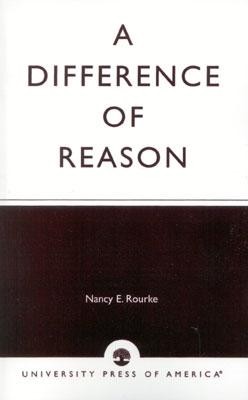
- We will send in 10–14 business days.
- Author: Nancy E Rourke
- Publisher: University Press of America
- ISBN-10: 0761805915
- ISBN-13: 9780761805915
- Format: 14 x 21.6 x 1.8 cm, softcover
- Language: English
- SAVE -10% with code: EXTRA
Reviews
Description
This book sets out a new jurisprudence to displace legal pragmatism. Legal pragmatism has been the law's deep operating theory for a century, but it no longer meets the needs of a nation as diverse as ours. William James defined pragmatism as a method and a theory of truth. This book offers a new method and a new theory of truth for use in law, one specifically designed to serve the needs of a diverse nation. One key feature is perspective reason. Human reason consists of two elements, the empirical or sense-based and the rationalistic or reason-based elements. In parallel with the philosophy of pragmatism, legal pragmatism attempted a synthesis of the two. This book argues for changes in the design of the trial made possible by the new theory of truth and method. The legal pragmatists believed that the trial as a reasoned inquiry into social dynamics may be ongoing. The proposed new method draws on recent developments in organizational science. The legal pragmatists treated practicing lawyers as the legal equivalent of scientists engaged in inductive inquiry. Thus 20th century law practice works by requiring that lawyers set out a statement of facts and conclusion of law in legal pleadings. The trial then inquires into the claims of fact. This form of legal science works from the perspective of the social factor as is true of the newer form of organizational science. An action-based legal method will make the law much more practical and useful to society. The trial remains to be rationalized in ways that can accomodate the reasoning of those who are subject to law. The new theory of the trial as an action-based, reasoned inquiry into social dynamics offers lawyers the means to do so.
EXTRA 10 % discount with code: EXTRA
The promotion ends in 20d.10:30:12
The discount code is valid when purchasing from 10 €. Discounts do not stack.
- Author: Nancy E Rourke
- Publisher: University Press of America
- ISBN-10: 0761805915
- ISBN-13: 9780761805915
- Format: 14 x 21.6 x 1.8 cm, softcover
- Language: English English
This book sets out a new jurisprudence to displace legal pragmatism. Legal pragmatism has been the law's deep operating theory for a century, but it no longer meets the needs of a nation as diverse as ours. William James defined pragmatism as a method and a theory of truth. This book offers a new method and a new theory of truth for use in law, one specifically designed to serve the needs of a diverse nation. One key feature is perspective reason. Human reason consists of two elements, the empirical or sense-based and the rationalistic or reason-based elements. In parallel with the philosophy of pragmatism, legal pragmatism attempted a synthesis of the two. This book argues for changes in the design of the trial made possible by the new theory of truth and method. The legal pragmatists believed that the trial as a reasoned inquiry into social dynamics may be ongoing. The proposed new method draws on recent developments in organizational science. The legal pragmatists treated practicing lawyers as the legal equivalent of scientists engaged in inductive inquiry. Thus 20th century law practice works by requiring that lawyers set out a statement of facts and conclusion of law in legal pleadings. The trial then inquires into the claims of fact. This form of legal science works from the perspective of the social factor as is true of the newer form of organizational science. An action-based legal method will make the law much more practical and useful to society. The trial remains to be rationalized in ways that can accomodate the reasoning of those who are subject to law. The new theory of the trial as an action-based, reasoned inquiry into social dynamics offers lawyers the means to do so.


Reviews